I called George Bush a ‘wimp’ on the cover of Newsweek. Why I was wrong.
In October 1987, when George H.W. Bush announced his candidacy for the presidency of the United States, Newsweek magazine ran a cover story titled “Fighting the ‘Wimp Factor.’” The article did not quite come out and declare that Bush was a weakling, and it noted that Bush’s own advisers were worried about the “wimp” label. But the clear implication of the cover story (which I edited, penciling in the word “wimp” over the objection of the story’s reporter, Margaret Warner) was that Bush somehow lacked the inner fortitude to lead the free world.
How wrong we were.
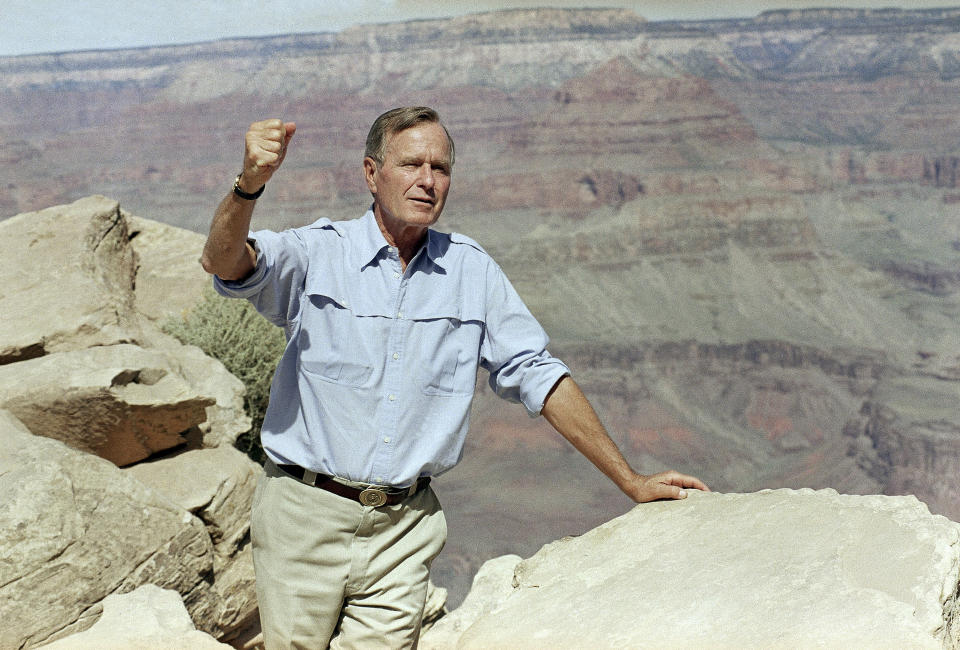
As the 41st president, Bush was anything but a wimp. In 1991, he had the courage to abandon his own “read my lips” vow and instead raise taxes in the cause of restoring fiscal sanity to the federal budget, left badly out of whack by his predecessor, Ronald Reagan. Agreeing to raise taxes was necessary to get the Democrats to agree to spending cuts, but it was political suicide for Bush. It cost him a second term in office, which he had almost surely earned by bringing the Cold War to a successful, peaceful conclusion and by driving Iraq from Kuwait in the 1991 Operation Desert Storm. Bush had wisely limited the first Gulf War to its stated war aims and resisted the temptation to push on to Baghdad. If only his own son had been so prudent after 9/11 and stuck to liberating Afghanistan without plunging into Iraq.
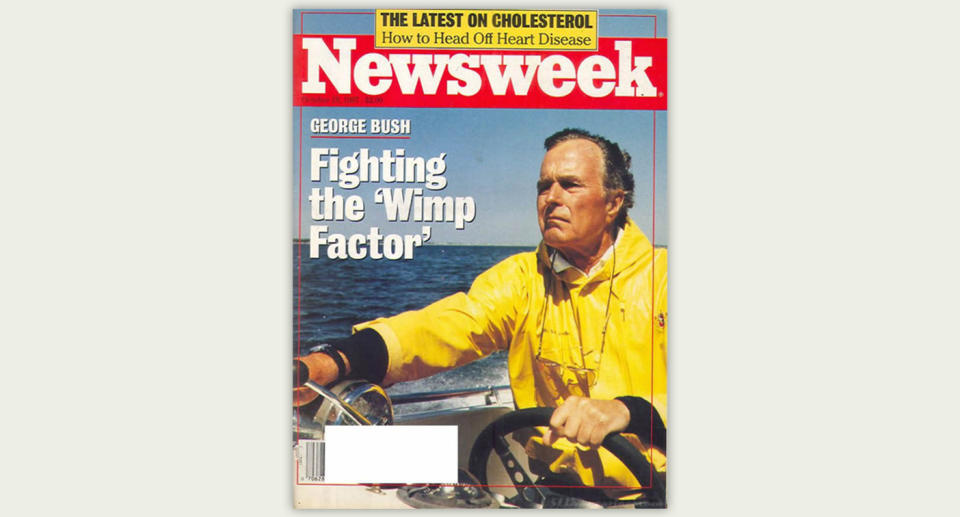
The elder Bush, it’s true, could sound tinny as a politician. He lacked the common touch of his son, who was more of a true Texan than his East Coast transplant father. Bush could seem vaguely uncomfortable asking for votes. He had trouble with the pronoun “I,” dropping it as the subject of a sentence. “Not going to do it!” he might say. He had perhaps too successfully internalized the sermon of his High WASP mother, Dorothy Walker Bush, to never boast — to beware of what she called “the Great I Am.”
But Bush’s humility was at once genuine and born of a deep and secure sense of self and place. He had been raised (as a matter of patrician duty) to humble himself in great causes, in service to God and country. His physical bravery was unquestionable. In World War II, he was commissioned as the youngest aviator in the U.S. Navy, a mere 19 years old. He flew into battle with dauntless courage. Shot down by the Japanese, he was rescued by an American submarine.
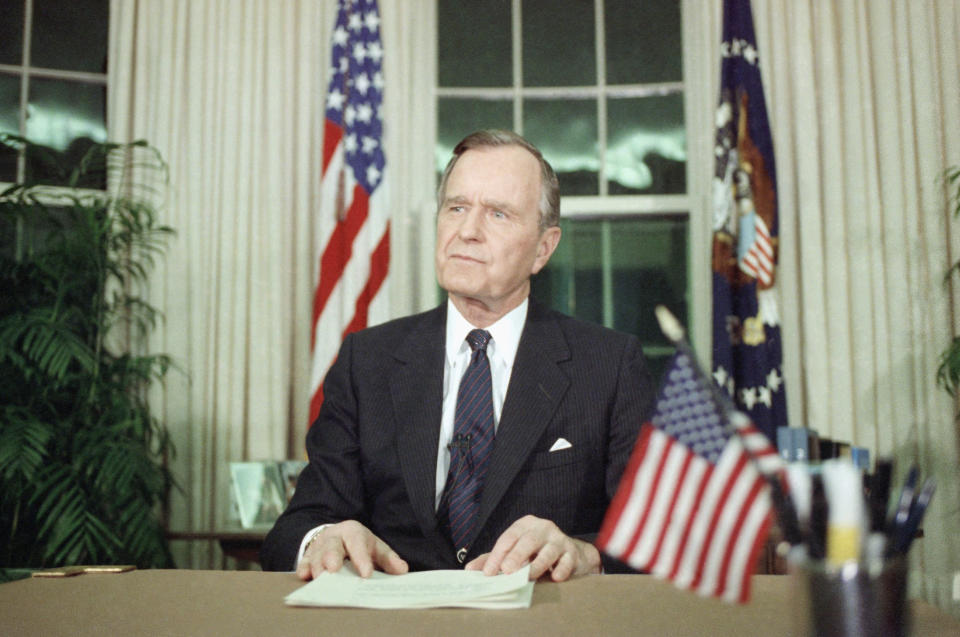
After graduating from Yale (Phi Beta Kappa, baseball captain, Skull and Bones), he could have taken an entitled sinecure as a Wall Street banker, but instead headed to Texas to risk his future as an oilman. As soon as he had made a modest pile, he committed himself to public service, serving as a congressman, head of the Republican Party, ambassador to the United Nations, envoy to China and director of the CIA. In 1980 he was elected vice president under Reagan. At times he seemed uneasy in Reagan’s shadow, supporting his conservative policies but not always with evident sincerity or at least much enthusiasm.
Slideshow: George H.W. Bush: A life in pictures >>>
Bush was at heart a moderate Republican, a nearly extinct species today. He was fiscally conservative, but he believed that government had a role in protecting the poor and redressing social injustice — all within reason, of course. The on-the-one-hand, on-the-other-hand tepidness of Republican moderation is easy to mock, and has been, mercilessly, by tea partiers and talk show shouters. But Bush nurtured a belief in compromise and consensus even, or perhaps especially, if that meant swallowed pride. In foreign policy he was an internationalist, an interventionist if necessary — but never an adventurer. He was smart to order his minions not to gloat when the Soviet Union collapsed in 1989. He knew that communism would fade away more quickly if Uncle Sam did not dance on its grave.
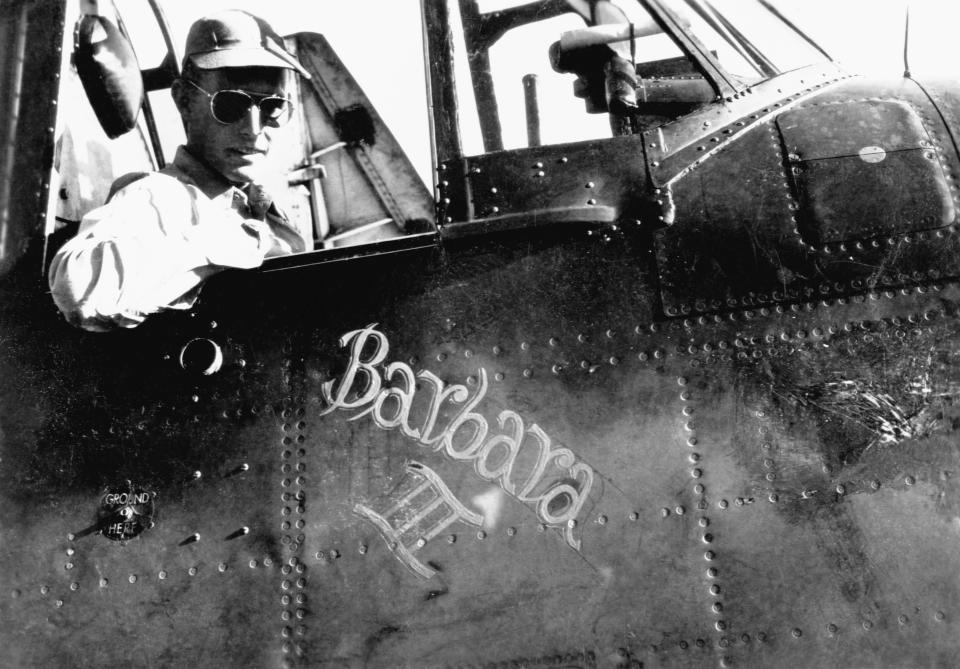
In a boastful age, when young people feel the need to “brand” themselves, Bush’s circumspection seems almost quaint. But the current dysfunction in Washington and the mindless one-upmanship played out on cable TV is enough to make one nostalgic for a time when politicians of different persuasions tried to listen and deal with each other. Bush as much as anyone embodied that lost age, when politics were said to stop at the water’s edge and there was a sense of shared purpose among lawmakers confronting the challenges of the Great Depression, World War II and the Cold War.
It would be a mistake to mythologize Bush. Politics were hardly pure in his time, and he made compromises that strained his sense of principle (like going along with Reagan’s antiabortion stand or pandering to conservatives by promising never to raise taxes). He could wander off the high road when political exigency demanded. In the 1988 election, he allowed his political henchmen, Roger Ailes and Lee Atwater, to paint the Democratic nominee, Massachusetts Gov. Michael Dukakis, as a weak-on-crime nerd — and to play to white fears of black criminals. Nor was Bush ego-free. At Newsweek, he let us know how mad he was at being called a “wimp.” But it is impossible to imagine him resorting to the petty vindictiveness of a Trump tweetstorm. Bush has been partly forgotten by history, but America’s 45th president may make us nostalgic for the grace and manners — and self-discipline — of our 41st.
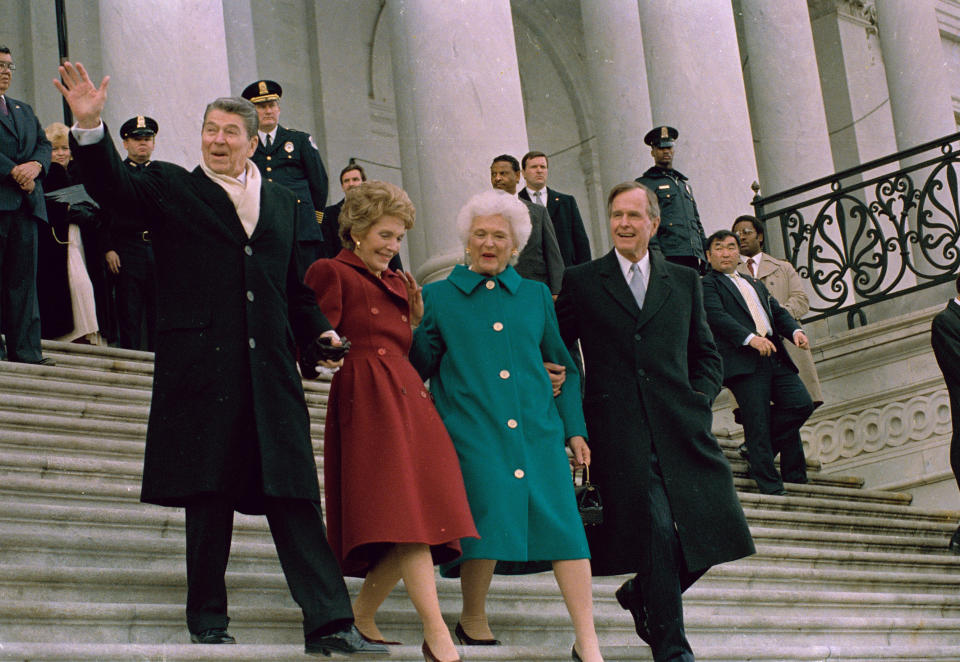
_____
Evan Thomas is an author and journalist. His last book was “Being Nixon: A Man Divided.” (Random House, 2015). His biography of Sandra Day O’Connor will be out in March 2019.
Read more from Yahoo News:
Trump asks why Mueller hasn’t interviewed ‘hundreds’ of campaign staffers
George Conway: Republican Party has become a ‘personality cult’ under Trump
Trump administration defends asylum crackdown after judge’s ruling
An American killing: Why did the U.S. Park Police fatally shoot Bijan Ghaisar?
Cory Booker: I will ‘take some time over the coming months’ to consider 2020 bid

